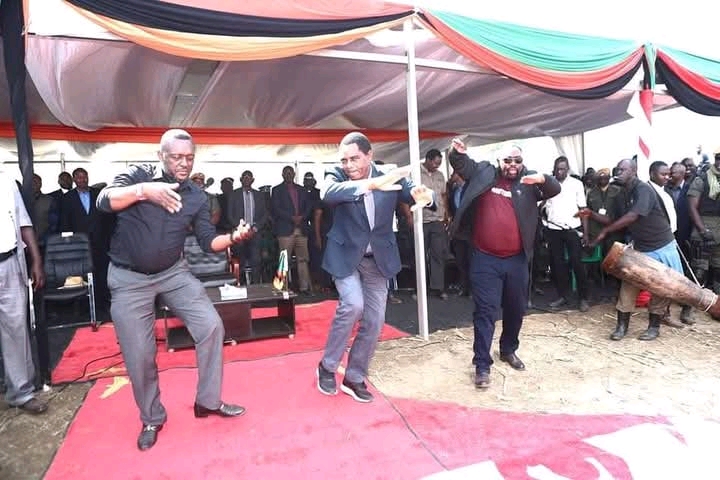There is only one bull in the Kraal
When Power Becomes Possession: The Gary Nkombo Incident and What It Reveals About President Hakainde Hichilema’s Undemocratic Core
By Thandiwe Ketis Ngoma
The recent video of former Minister of Local Government Gary Nkombo reporting himself to the Zambia Police over nothing more than unverified rumors that he intended to challenge President Hakainde Hichilema’s leadership should alarm every citizen who values democracy. That a senior political figure felt compelled to seek police intervention over internal party speculation reveals a far more disturbing reality: democracy within the United Party for National Development (UPND) is not just eroding; it is effectively dead.
Nkombo’s decision was not born of guilt. It was driven by fear, an instinct for survival in a political environment where ambition is punished, dissent is criminalized, and loyalty to one man is treated as the only acceptable currency. His self-reporting was not an act of accountability but a signal of desperation, a sobering glimpse into the toxic culture that now defines the UPND.
This incident is not an outlier. It is the latest in a pattern that has grown steadily more brazen over the years.
Since the death of UPND’s founding leader, Anderson Kambela Mazoka, in 2006, Hakainde Hichilema has held onto power without interruption. For 23 years, he remained unchallenged, unopposed, and unquestioned. Are we really to believe that in all that time, no one else within the party possessed the competence, vision, or courage to lead? Or is the truth far more troubling: that the UPND was systematically molded into a political monarchy where only one voice mattered?
The answer is self-evident. Hichilema has not led by building consensus; he has ruled through control. Under his leadership, the UPND transformed from a political organization into a personality cult centered around the elevation and protection of a single individual. Debate has been silenced. Ambition has been discouraged. Internal democracy has been hollowed out. This is not party strategy; it is authoritarianism dressed in party colors.
Now, this same autocratic style has been carried from the party to the presidency.
As Head of State, Hichilema has doubled down on the very traits that once stifled his party. He has publicly declared that he is “glued to the chair,” that “no one will move” him, and that he holds the “keys to the Presidency.” These are not the words of a public servant. They are the declarations of a man who sees power not as a public trust but as personal property.
This attitude is dangerous.
Mr. President, let this be stated clearly and without apology: Zambia is not your possession.
Zambia is not a political party. It is not a fan base. It is not a stepping stone for your personal ambitions. Zambia is a sovereign republic built on democratic principles, sustained by the will of its people, and protected by the rule of law. It does not belong to the UPND. It does not belong to you. It belongs to the citizens, and they are watching.
They see the economic deterioration. They see the shrinking space for free expression. They see the law enforcement agencies being used to intimidate critics and enforce party loyalty. And they see the slow, calculated dismantling of democratic norms that once served as the backbone of this nation.
Your failures are not hidden. Your authoritarianism is not subtle. And your contempt for dissent is not strength; it is weakness disguised as control.
The Gary Nkombo incident should never happen in a democracy. No citizen should ever feel compelled to clear their name through law enforcement channels over internal party politics. That it did happen, and that it happened under your watch, says everything about the environment you have created—one where fear trumps freedom and paranoia replaces principle.
But power has limits.
Mr. President, you may believe you hold the keys to State House. But those keys were never yours to own. They were entrusted to you temporarily by the people of Zambia. And just as they were given, they can and will be taken back the moment you forget that power in a democracy flows from the people, not to them.
We are not your subordinates. We are not your loyalists. And we are not afraid.
Zambia is not your empire. It is not your playground. It is our home. And we will defend it with our voices, our votes, and our vigilance.
We are watching. And when the time comes, we will act.
